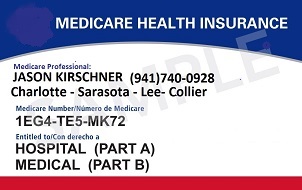What is Medicare?
Medicare provides essential health coverage to help cover
hospital stays, doctor visits, prescription drugs, and more.
It is divided into different parts, each offering specific
coverage options:
The Four Main Parts of Medicare
Part A (Hospital Insurance):
Covers inpatient hospital stays, skilled nursing facility
care, hospice, and some home health services. Most people
don’t pay a premium for Part A if they or their spouse paid
Medicare taxes while working.
Part B (Medical Insurance):
Covers outpatient care, doctor visits, preventive services,
and some home health care. Part B requires a monthly
premium, which can vary based on income.
Part C (Medicare Advantage):
An alternative to Original Medicare (Parts A and B) offered
by private insurance companies approved by Medicare. These
plans often include additional benefits like vision, dental,
and hearing coverage.
Part D (Prescription Drug Coverage):
Provides coverage for prescription medications. Like Part B,
it is offered through private plans and requires a monthly
premium.
Important Considerations Enrollment Periods:
** Be aware of enrollment periods to avoid penalties or gaps
in coverage. The Initial Enrollment Period begins three
months before your 65th birthday and ends three months
after. Additional Coverage:
** Many beneficiaries opt for supplemental insurance
(Medigap) to cover costs not paid by Original Medicare.
Costs and Budgeting:
Understand premiums, deductibles, copayments, and coinsurance to plan your healthcare budget effectively. Planning for the Future Medicare is a crucial component of retirement planning, but it’s just one part of your overall health strategy. Consider your healthcare needs, budget, and preferences when choosing coverage options. Consulting with a Medicare advisor or using official resources like the https://www.medicare.gov/ website can provide personalized assistance.
Need More Help?
If you have specific questions about Medicare or need
assistance choosing the right plan, don’t hesitate to reach
out to a licensed insurance agent or your local State Health
Insurance Assistance Program (SHIP).
Remember: Staying informed and proactive about your
healthcare coverage ensures peace of mind and access to the
care you need throughout your retirement years.


